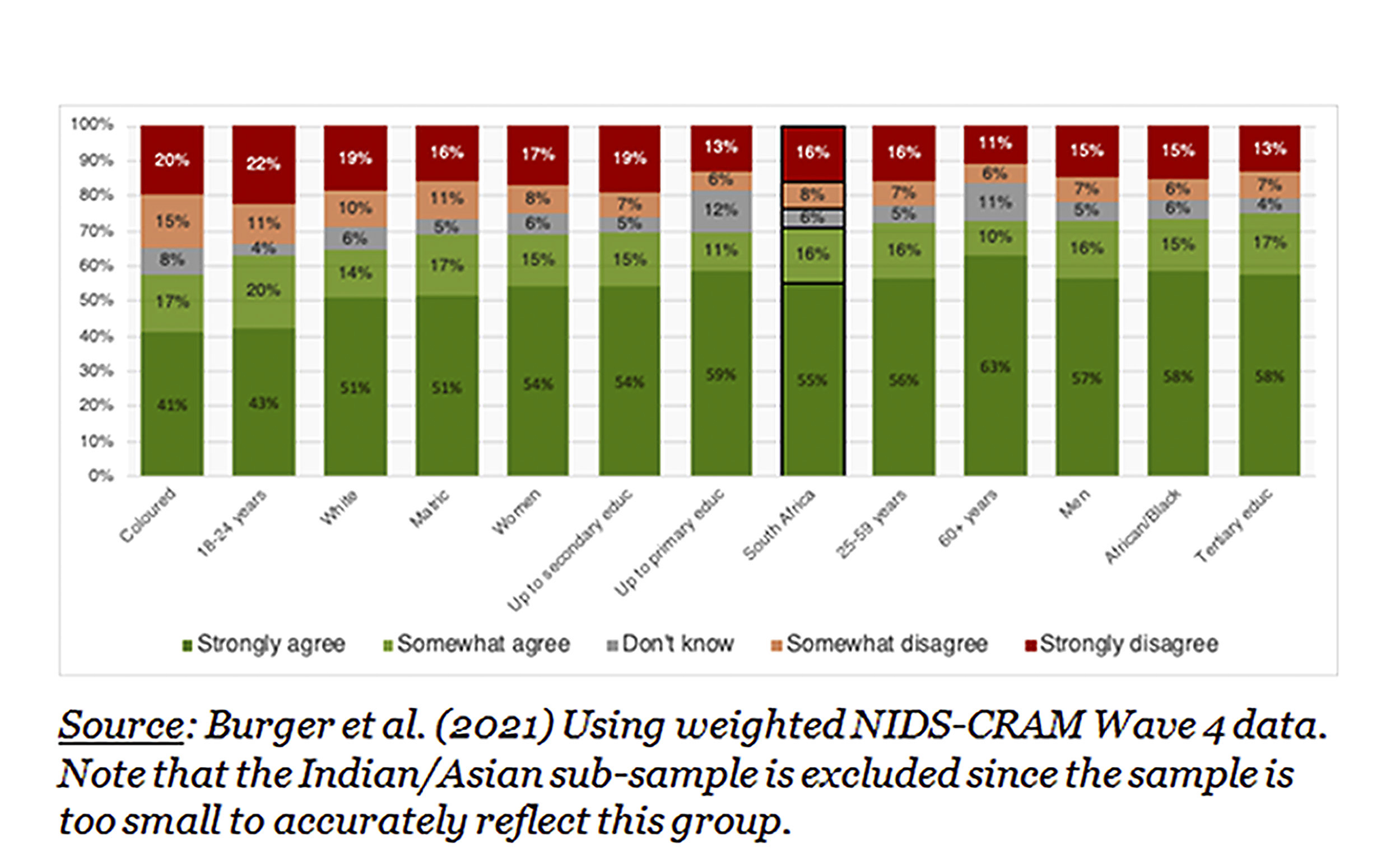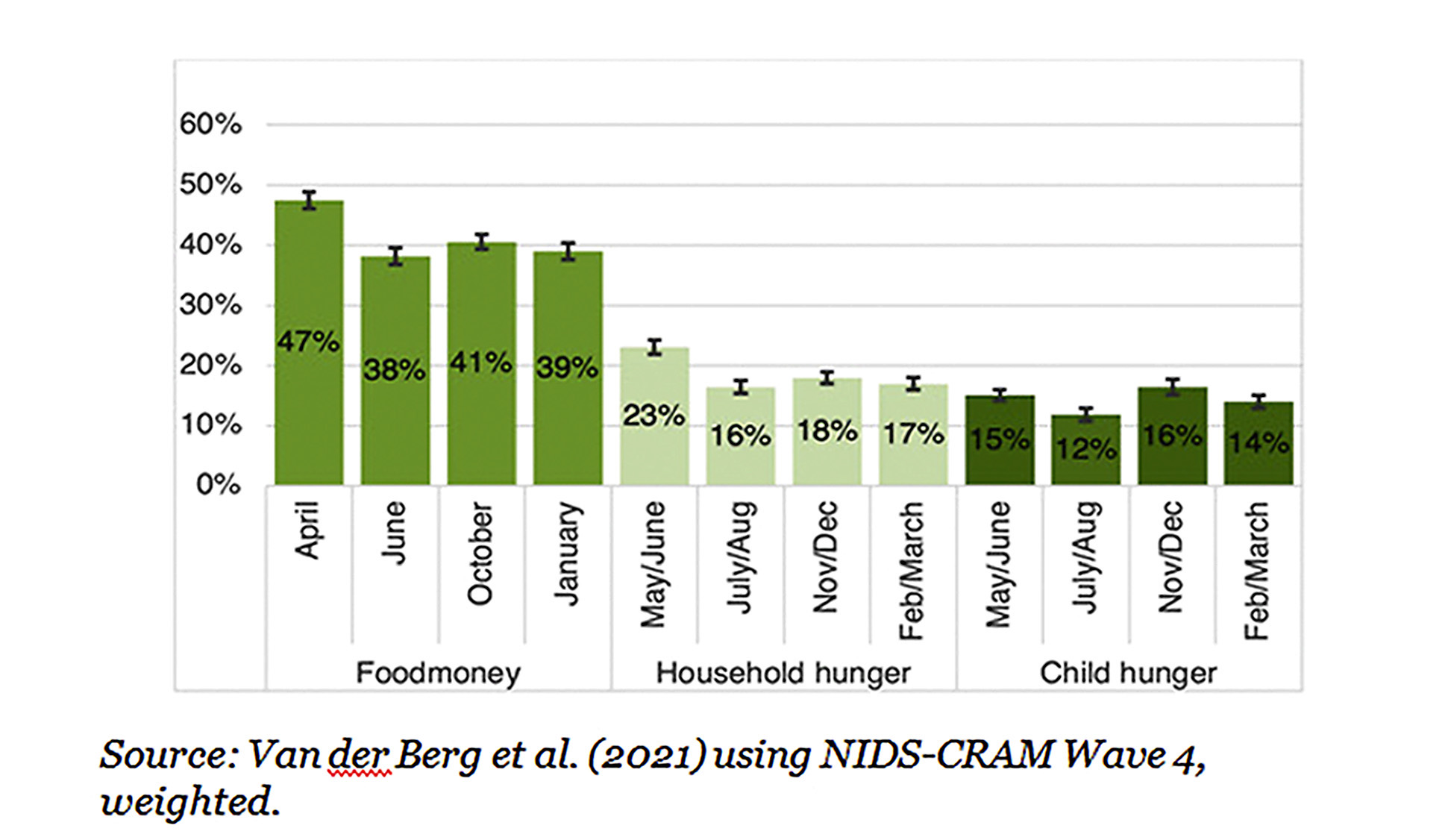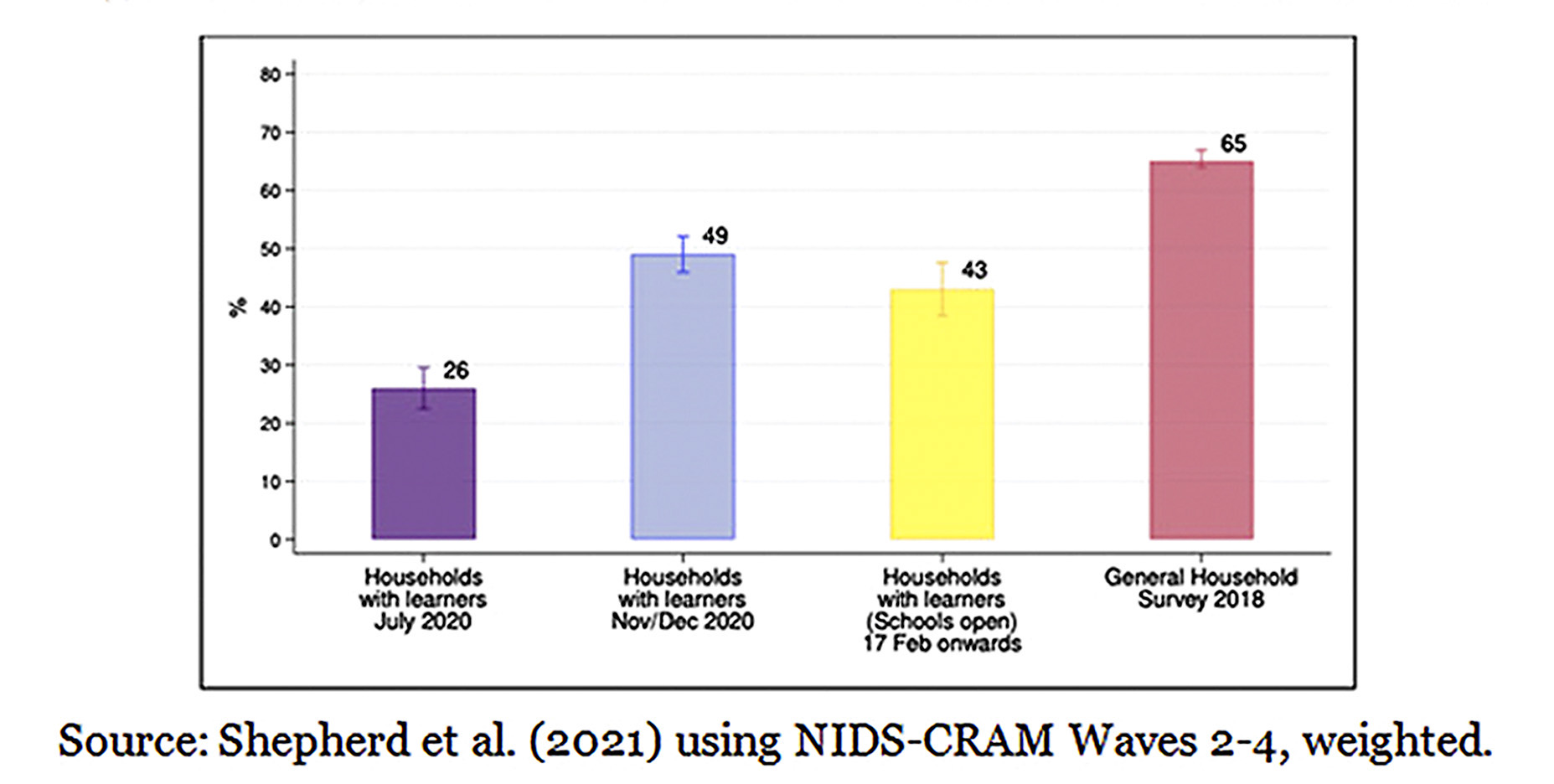NIDS-CRAM: OP-ED
Vaccines and vulnerability: Survey provides window of insight into SA’s Covid second wave

The latest survey finds that flattening learning trajectories associated with schooling in 2020 have compromised education gains made over much of the last decade. This bodes ill for the entire Covid generation of learners in the schooling system. Policy interventions to mitigate the negative implications of these educational trajectories are urgently needed.
Reza C. Daniels is Associate Professor, School of Economics, UCT; and Principal Investigator (along with Nic Spaull) of NIDS-CRAM.
Wave 4 of the National Income Dynamics Study – Coronavirus Rapid Mobile Survey (NIDS-CRAM) was released on May 12, 2021, with all the data and research reports freely available to the public (see www.cramsurvey.org for details). Fieldwork for the fourth wave of data took place between 2 February and 10 March 2021, capturing information about 5,629 respondents’ experiences during Level 3 of lockdown in January this year.
This penultimate wave of the survey helps provide a window of insight into the state of South African society during the onset of the second wave of Covid-19.
Rates of Covid-19 infections had already started to increase by the beginning of December 2020 as South Africa headed into the second wave of the pandemic (a more severe wave than the first, fuelled by the emergence of a faster-spreading Covid-19 variant). At the same time, several countries worldwide had begun the rollout of vaccines to their populations. In NIDS-CRAM Wave 4 we, therefore, introduced a question to see whether respondents would be willing to take a vaccine. The overall finding was that 71% of South African adults said they would get vaccinated if a Ccovid-19 vaccine became available.

Figure 1: Percentage of respondents agreeing/disagreeing with the statement “If a vaccine for COVID-19 were available, I would get it.”
Among the 29% of respondents who were vaccine-hesitant, the three leading reasons for their hesitancy were
- that they were worried about the side effects (31%);
- did not believe it was effective (21%); or
- did not trust vaccines in general (18%).
If respondents were hesitant about getting a vaccine, they were asked for reasons why they were hesitant. Importantly, only 8% of those exhibiting vaccine hesitancy do not believe they are at risk of getting Covid-19. Individuals who trust social media as an information source were significantly more likely to exhibit vaccine hesitancy, by seven percentage points.
Relative to other countries, vaccine acceptance in South Africa is higher than recent estimates from the US and France, but lower than China, Brazil and the UK.
The hope of efficacious vaccine administration abounds, for as a society we face a resilient but extremely vulnerable socio-economy. As most observers have praised the success of the most recent lockdown in stemming the tide of the second wave of Covid-19 infections, the social and economic consequences of the lockdown continue to present harrowing statistics.
The impact of the move to an adjusted level 3 lockdown on employment was an overall drop in the percentage of people employed (between 18-64 years old) by approximately three percentage points, from 55% in October 2020 to 52% in January 2021.

This erased some of the gains experienced between July and October 2020, when total employment showed a partial recovery to its pre-Covid levels (56%), due to the ease of restrictions from lockdown level 3 in June to level 1 in October. The substantial labour market churning that has characterised the South African economy since the beginning of lockdown continues, as does the gender bias against women.
So what have we learnt about the responsiveness of the SA labour market to lockdown regulations?
The adjusted lockdown level 3 — in operation from 29 December 2020 to 28 February 2021 — was a less restrictive level compared to NIDS-CRAM Wave 3 in June with respect to certain sectors, such as household sector work, tourism, hospitality, domestic and international air travel. There were also slight differences in the hours that the curfew applied to, and sectors in the leisure industry were given more leeway than in the first level 3 lockdown.
Partly because of these adjusted regulations, the employment impacts were less dramatic than previously witnessed, though still negative. This means that the details of the regulations of each phase of lockdown matters, and subtle changes in these regulations have the potential to cause large labour market effects.
One of the most important learnings coming out of our experience as a nation is therefore that in future phases of lockdown, very careful attention needs to be paid to the occupations and sectors that are restricted, with a view to minimizing the negative employment effects while maximising the health outcomes. Much work remains to be done here.
Turning to hunger now:
One of the most important findings from Wave 1 of NIDS-CRAM was that with the employment shocks associated with lockdown level 5 in March/April 2020, household & child hunger spiked to hitherto unprecedented levels. We’ve continued to track the prevalence of hunger throughout each wave of the survey. In Wave 4, weekly child hunger declined from 16% in November/December to 14% in February/March 2021, although this new rate (14%) is still nearly double pre-pandemic levels (8%).

Figure 3: Prevalence of running out of money to buy food, weekly household hunger and weekly child hunger in South Africa over the four waves of NIDS-CRAM 2020/2021 (all households with children in them)

Figure 4: Receipt of free school meals in 2020 and 2021 in South Africa.
The majority of parents and caregivers in South Africa (58%) agreed that children should be able to attend school every day, rather than rotational timetables. In the ECD sector, of respondents indicating that they lived with children aged 0 to 6 but no child was attending an ECD programme in the past 7 days, 26% indicated that the reason for non-attendance was that the programme was “temporarily closed due to lockdown”. If one further restricts the sample to those where children had attended an ECD programme in February 2020 (pre-pandemic) but not in the past seven days, as many as 43% of respondents indicate that the Centre was temporarily closed.
Flattening learning trajectories associated with schooling in 2020 have compromised education gains made over much of the last decade, and this bodes ill for the entire Covid generation of learners in the schooling system. Policy interventions to mitigate the negative implications of these educational trajectories are urgently needed. DM/MC
"Information pertaining to Covid-19, vaccines, how to control the spread of the virus and potential treatments is ever-changing. Under the South African Disaster Management Act Regulation 11(5)(c) it is prohibited to publish information through any medium with the intention to deceive people on government measures to address COVID-19. We are therefore disabling the comment section on this article in order to protect both the commenting member and ourselves from potential liability. Should you have additional information that you think we should know, please email [email protected]"





 Become an Insider
Become an Insider